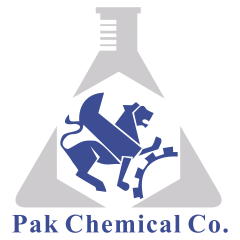Glycerin Monostearate, commonly known as GMS. It is a glyceryl ester of stearic acid widely used as an emulsifier, thickening, and anti-caking agent in the food industry. Recognized by its white or cream-like appearance, GMS is a key ingredient in many of our favorite foods, contributing to their taste, texture, and shelf-life.
Glycerin Monostearate‘s use in the food industry began in the mid-twentieth century as manufacturers sought ways to extend shelf life and improve the quality of processed foods. GMS emerged as an affordable, effective solution. It has a GRAS (Generally Recognized As Safe) status in many countries, Considered safe based on a long history of common use in food or on the results of research.

Functionalities of Glycerin Monostearate GMS
Glycerin Monostearate GMS Primarily used as an emulsifier, creating a stable interface between oil and water, two elements that naturally repel each other. It’s a crucial component in foods like ice cream, whipped cream, and salad dressings, where it ensures a smooth, homogeneous texture.
GMS also acts as an anti-staling agent in baked goods, slowing the retrogradation of starch and extending shelf life. It contributes to a fine, even crumb structure in cakes and bread, making them softer and more enjoyable.
Moreover, Glycerin Monostearate GMS functions as an anti-caking agent, preventing powdery ingredients from clumping together. Used in products like cake mixes, hot chocolate powder, and grated cheese, ensuring that they remain free-flowing.
Health and Safety Considerations
It’s important to consider dietary needs and potential allergies. Like other food additives, consumed within the Acceptable Daily Intake (ADI). Although rare, some individuals may experience allergic reactions, including skin irritation or gastrointestinal discomfort.
Sustainability and Ethical Considerations
Derived from both plant and animal sources, it’s critical to consider the source when addressing sustainability and ethical concerns. Many manufacturers have shifted towards plant-derived sources. Such as palm or soy, to align with increasing consumer demands for vegan and sustainable products.
New processing technologies are leading to novel applications of Glycerin Monostearate GMS. Nanoemulsions, for instance, which are stabilized by GMS. Can enhance the bioavailability of certain nutrients, improving the nutritional profile of foods. Moreover, as the plant-based food sector expands, the role of GMS in creating appealing textures and flavors in vegan products is increasingly important.
Regulatory Aspects
While Glycerin Monostearate GMS is approved for use in food in many countries, regulations vary. The European Food Safety Authority (EFSA) and the U.S. Food and Drug Administration (FDA), for example, have different guidelines on the use of food additives. Manufacturers must therefore adhere to local regulations, ensuring that their products are safe and compliant.
Glycerin Monostearate plays a pivotal role in the food industry, significantly impacting the quality, texture, and shelf life of various food products. While it remains a safe and useful additive, ongoing research and development are essential to fully understand its potential impacts and future applications. As consumers continue to demand better quality, healthier, and more sustainable food options, the role of additives like GMS in food processing will undoubtedly continue to evolve.
